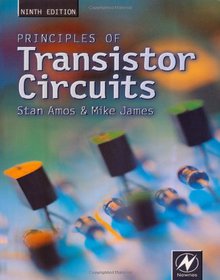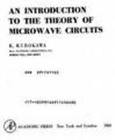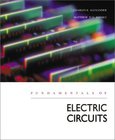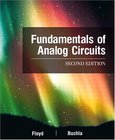Principles of Transistor Circuits
9th Edition

Book Details:
| Publisher: | Newnes |
| Series: | Newnes , Principles |
| Author: | S. W. Amos |
| Edition: | 9 |
| ISBN-10: | 0750644273 |
| ISBN-13: | 9780750644273 |
| Pages: | 416 |
| Published: | Apr 18 2000 |
| Posted: | Nov 19 2014 |
| Language: | English |
| Book format: | |
| Book size: | 2.46 MB |
Book Description:
Over the last 40 years, Principles of Transistor Circuits has provided students and practitioners with a text they can rely on to keep them at the forefront of transistor circuit design. Although integrated circuits have widespread application, the role of discrete transistors both as important building blocks which students must understand, and as practical solutions to design problems, remains undiminished.The ninth edition has been thoroughly updated to cover the latest technology and applications, including computer circuit simulation, and many diagrams have been revised to bring them in line with current usage. Updated topics include thyristors, Darlington transistors, amplifiers, ring modulators, power supplies, optoelectronics and logic circuits. Stan Amos, formerly head of Technical Publications Section Engineering Training Department BBC, has been writing about electronics since the 1950s. Mike James is an established author and experienced FE lecturer. He currently works for Westland. His latest Newnes titles are Microcontroller Cookbook and Higher Electronics. The transistor circuits bibleUpdated with new developments in technology and applications Accessible step-by-step introduction ideal for novices
Download Link:
Related Books:
Introduction to the Theory of Microwave Circuits
In Chapter 1, some of the topics in the conventional circuit theory are reviewed, which have particular importance in the theory of microwave circuits. There include the theory of transmission line, bilinear transformations, and power waves. Chapter 2 gives a review of vector analysis and the fundamental properties of electromagnetic fields to facilitate our later study. In Chapter 3, waveguides are discussed for the first time. Here, the eigenvalue problem is studies in detail including the completeness of eigenfunctions. Without the discussion of the completeness, the theory is only partially correct since no answer is given to certain fundamental questions such as why an exponential variation with distance is assumed for each mode and no other pos...
Fundamentals Of Electric Circuits
Alexander and Sadiku's third edition of Fundamentals of Electric Circuits continues in the spirit of its successful previous editions, with the objective of presenting circuit analysis in a manner that is clearer, more interesting, and easier to understand than other, more traditional texts. Students are introduced to the sound, six-step problem solving methodology in chapter one, and are consistently made to apply and practice these steps in practice problems and homework problems throughout the text and online using the KCIDE software.
A balance of theory, worked examples and extended examples, practice problems, and real-world applications, combined with over 300 new homework problems for the third edition and robust media offerings, renders the ...
Fundamentals of Analog Circuits
2nd Edition
This comprehensive book meets the content requirements of most technical schools without hampering the reader with excessive detail. A strong emphasis on troubleshooting will help prepare the reader for work in the industry. This book introduces discrete device circuits and then delves more deeply into analog integrated circuitsa topic that has more importance for today's technicians. For technician-level courses in analog circuits and those who are pursuing a career in electrical technology....
2007 - 2021 © eBooks-IT.org



